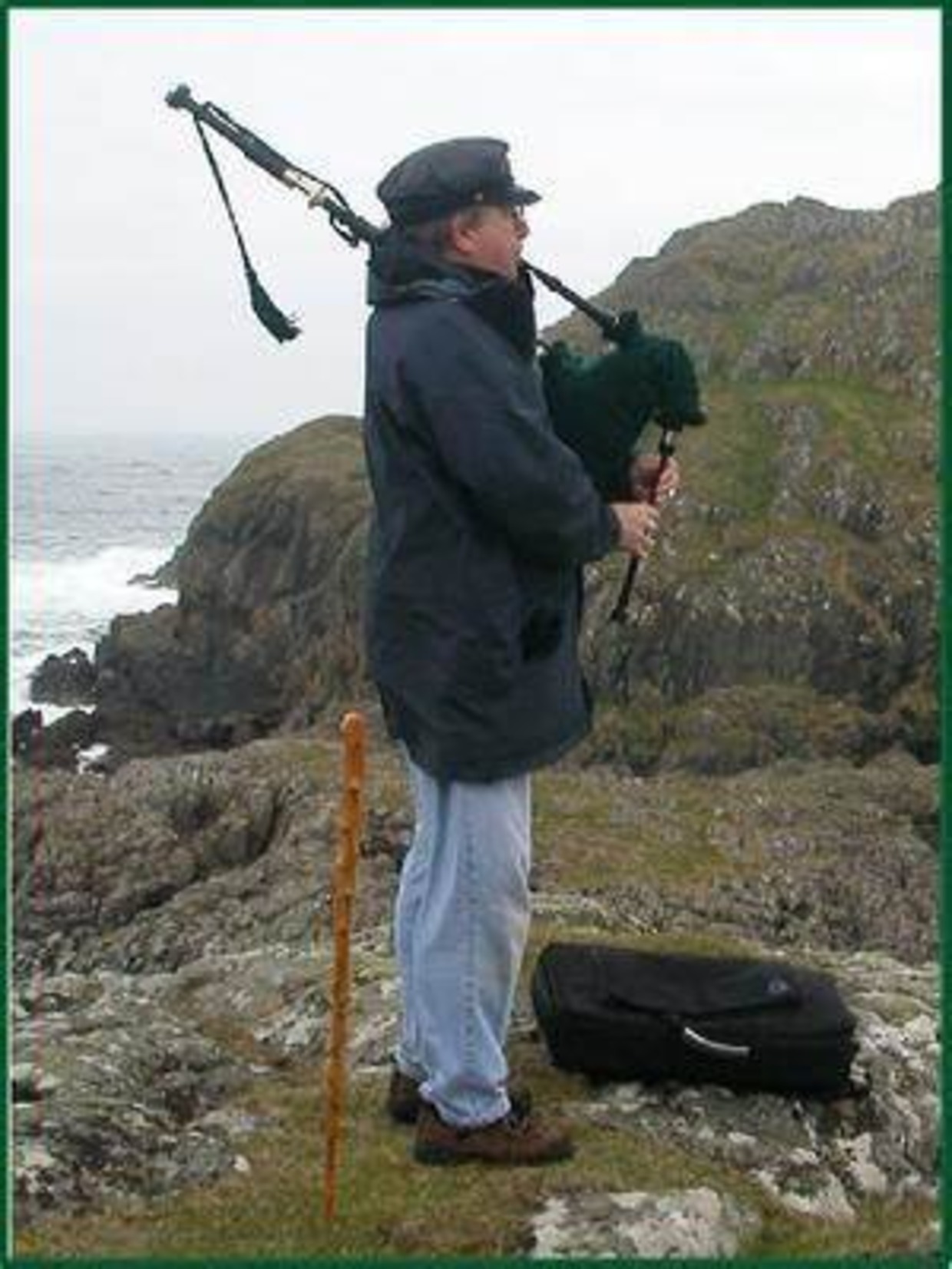The Piper On Iona - A Melody Of History And Tradition
The Isle of Iona, a small island in the Inner Hebrides off the west coast of Scotland, is renowned for its rich history, spiritual significance, and stunning natural beauty. One of the most evocative symbols of this island is the figure of the piper, whose melodies have echoed through its landscapes for centuries.
Mar 20, 20241.6K Shares92.1K Views

The Isle of Iona, a small island in the Inner Hebrides off the west coast of Scotland, is renowned for its rich history, spiritual significance, and stunning natural beauty. One of the most evocative symbols of this island is the figure of the piper, whose melodies have echoed through its landscapes for centuries.
The Piper on Ionarepresents a blend of cultural heritage, musical tradition, and the enduring spirit of the ScottishHighlands. This article explores the historical and cultural significance of the piper on Iona, delves into the music and traditions associated with it, and answers common questions about this iconic figure.
The Historical Significance Of Iona
Early History And Spiritual Importance
Iona has been a place of spiritual significance since the arrival of St. Columba in AD 563. The island became a center for Christian missionary work and education, and its monastery played a crucial role in the spread of Christianity throughout Scotland and Northern Europe. The monastery was also known for its production of the Book of Kells, one of the most famous illuminated manuscripts.
Viking Raids And Monastic Life
Despite its peaceful mission, Iona faced numerous Viking raids during the 8th and 9th centuries. These invasions led to periods of hardship, but the monastic community persevered, and Iona remained an important religious site. Today, the island is a pilgrimage destination, attracting visitors from around the world who seek to connect with its spiritual heritage.
The Piper On Iona: A Symbol Of Tradition
The Role Of The Piper In Scottish Culture
The piper holds a special place in Scottish culture, often serving as a custodian of tradition and a bearer of news. Historically, pipers accompanied clans into battle, played at significant ceremonies, and marked important communal events. The haunting sound of the bagpipes is deeply intertwined with the identity of the Scottish Highlands.
The Piper On Iona
On Iona, the figure of the piper is particularly poignant. The island's tranquil landscapes and deep historical roots create a unique backdrop for the piper's melodies. The presence of a piper on Iona is not just about music; it is a connection to the past, a celebration of heritage, and a tribute to the enduring spirit of the island's people.
The Music Of The Piper
Traditional Bagpipe Tunes
The music played by the piper on Iona includes a variety of traditional bagpipe tunes, such as marches, laments, reels, and jigs. These tunes often carry stories and emotions, from the joy of a wedding celebration to the solemnity of a memorial service.
The Significance Of Piping On Iona
Piping on Iona is not merely a performance; it is an act of reverence and remembrance. The piper's music can be heard during religious ceremonies, community gatherings, and personal moments of reflection. The bagpipes' distinctive sound, carried on the island's winds, evokes a sense of continuity and connection to the island's storied past.
The Piper In Modern Times
Festivals And Events
In contemporary times, the piper on Iona continues to play a significant role in local festivals and events. The annual Iona Community Festival, for example, features performances by pipers and other musicians, celebrating the island's cultural heritage and community spirit.
Personal Pilgrimages
Many visitors to Iona make personal pilgrimages, seeking solace and inspiration in its serene environment. The presence of a piper can enhance these experiences, providing a soundtrack to moments of contemplation and connection with nature and history.
Frequently Asked Questions
What Is The Historical Significance Of The Piper On Iona?
The piper on Iona symbolizes the island's deep connection to Scottish cultural traditions and its historical significance as a center of spirituality and learning. The piper's music serves as a bridge between the past and present, honoring the island's heritage.
How Often Can You Hear A Piper On Iona?
While there is no set schedule, pipers can often be heard during local festivals, religious ceremonies, and special events on the island. Visitors may also encounter pipers during personal pilgrimages or community gatherings.
What Kind Of Music Does The Piper On Iona Play?
The piper on Iona typically plays traditional Scottish bagpipe tunes, including marches, laments, reels, and jigs. These tunes reflect various aspects of Scottish culture, from celebrations to commemorations.
How Does The Presence Of A Piper Enhance The Experience Of Visiting Iona?
The presence of a piper enhances the experience of visiting Iona by providing a powerful auditory connection to the island's cultural and historical roots. The haunting sound of the bagpipes adds to the island's mystical and serene atmosphere, enriching personal and communal experiences.
Can Anyone Learn To Play The Bagpipes On Iona?
While there are no formal bagpipe schools on Iona, visitors interested in learning to play the bagpipes can find instructors and resources in Scotland. Participating in local music events and festivals on Iona can also provide opportunities to connect with experienced pipers.
Conclusion
The piper on Iona is more than just a musician; they are a guardian of tradition, a storyteller through music, and a symbol of the island's enduring heritage. The melodies played by the piper resonate with the history, spirituality, and natural beauty of Iona, creating a profound and moving experience for all who hear them. Whether you visit Iona for its historical significance, and spiritual atmosphere, or simply to enjoy its breathtaking landscapes, the presence of the piper adds a layer of depth and connection to this magical Scottish island.
Latest Articles
Popular Articles